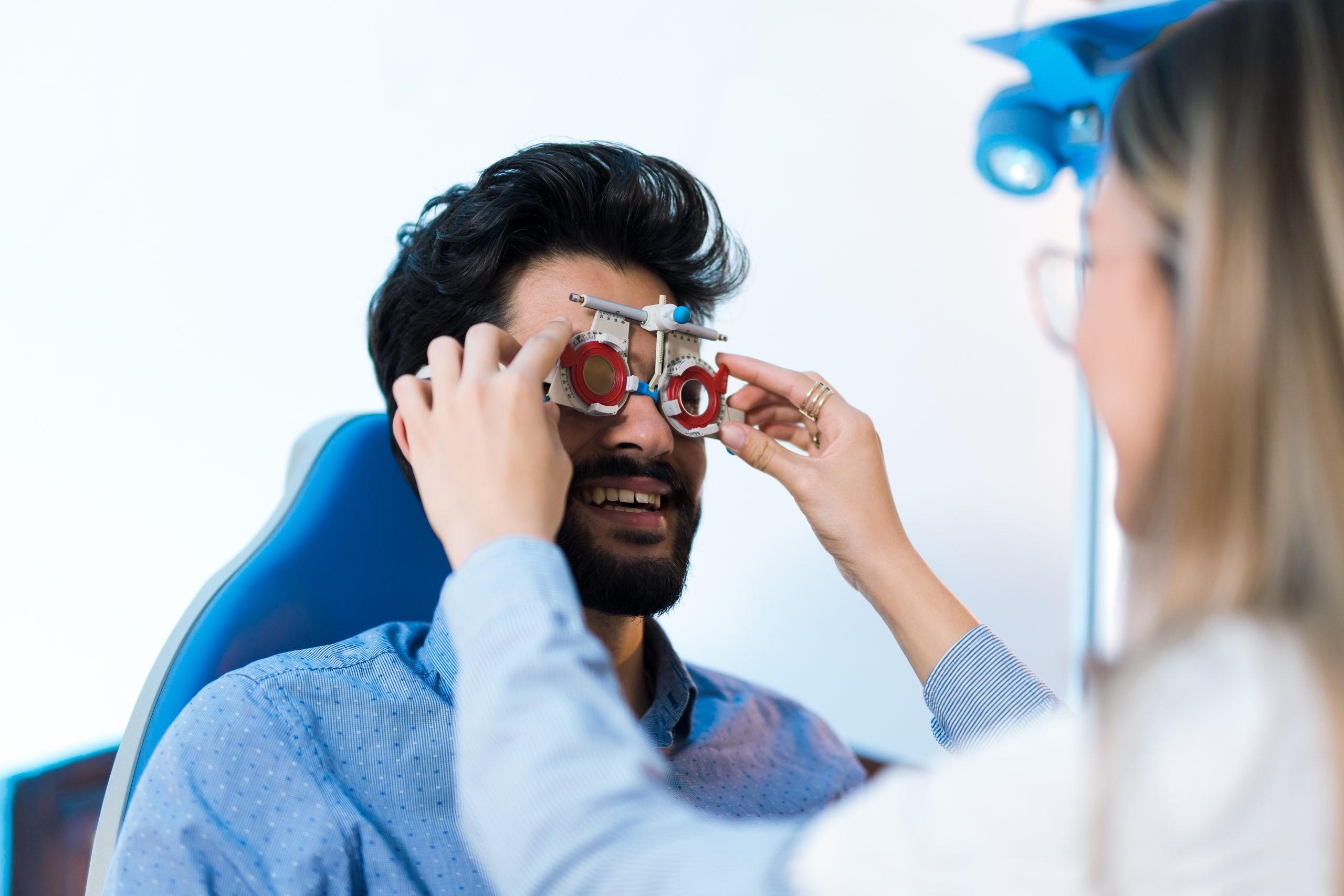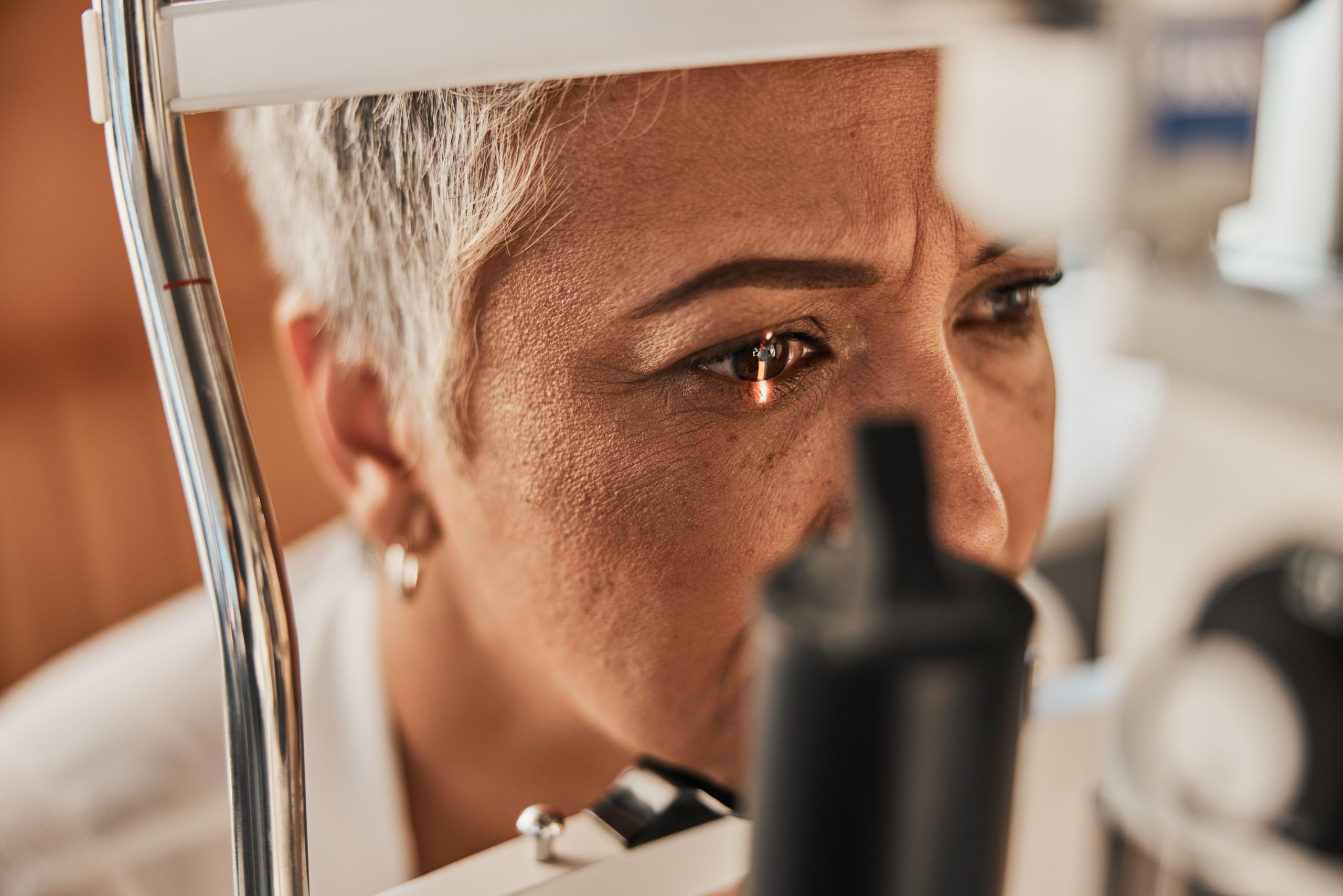Double Vision Treatment in Parker, CO
Double vision can significantly impact your daily life – it can make basic tasks, such as driving or reading, challenging while also increasing your risk of physical injury. At Good iSight, we’re experts at evaluating double vision and providing compassionate patient-centered eye care. We use the newest diagnostic and therapeutic techniques to help you recover your eyesight and stop other symptoms from occurring. Here’s what you should know about vision therapy for double vision.

What is Diplopia or Double Vision?
Diplopia, also known as double vision, is an eye condition that causes people to see two of the same images horizontally, vertically, or diagonally. Double vision occurs in specific circumstances, such as when looking in the distance or a particular direction. In some cases, the double vision may fluctuate throughout the day, peaking during periods of fatigue.
What Causes Double Vision?
Double vision has many possible causes, depending on whether one or both eyes are affected. Common causes of double vision include refractive error, keratoconus, dry eyes, severe astigmatism, or cataracts. In contrast, binocular diplopia is usually caused by your eyes being out of alignment (strabismus), eye teaming issues like convergence insufficiency, or more serious underlying conditions like cranial nerve issues, brain tumors, thyroid dysfunction, brain aneurysm, or stroke. Diplopia can affect anyone, including children, adolescents, and adults.
Visual Therapy Services that Unlock Your Vision Potential
Book Your Appointment Today
Types of Double Vision
There are two types of double vision—binocular diplopia and monocular diplopia.
- Monocular: This is the most common type of double vision, occurring only in one eye or when one eye is open. Many people with monocular diplopia report that one of the images will be very clear, while the other will be faded or washed out.
- Binocular: Binocular double vision only occurs when both eyes are open and is caused by a misalignment of the eyes or a binocular vision disorder.. Sometimes, binocular diplopia becomes apparent only when you move the eyes in a certain direction, such as up or down or far to the left or right. Covering one eye can eliminate the double image if you have binocular diplopia.
Treatment and Vision Therapy for Double Vision
Monocular or binocular treatment depends on the underlying cause and may consist of the following:
- Vision Therapy: These doctor-supervised, in-office eye exercises are designed to help teach the brain how to use both images from each eye better and fuse them together to create a single image. Changing the neurological control center for eye movements helps us to eliminate double vision in patients with binocular double vision. Vision is a learned process, so we can provide vision therapy for double vision for all ages.
- Prism lenses: Prism lenses can be used to help eliminate double vision in some cases. We can apply temporary prisms onto lenses or put them into a prescription once we establish if the patient can fuse with these lenses.
- An eye patch, spot patch, or occlusive lens: Blocking or blurring the vision of one eye using an eye patch or occlusive lens can help minimize double vision. The downside of using patches are we eliminate the ability for the two eyes to learn to work together and depth perception is affected. In rare cases, we do have to rely on patching as a treatment.
- Treatment of underlying medical conditions: If an underlying medical condition causes your double vision, you will be referred to a specialist for further treatment. Once the underlying cause is treated, the double vision and any other symptoms you’re experiencing should improve.
- Surgery: Surgery is not often our recommendation to reduce double vision. Strabismus surgery realigns where the eyes are positioned, but does not necessarily teach the brain how to use that position in space and create single vision. If surgery is indicated, we recommend vision therapy before and after the procedure to give our neurological eye muscle control centers the best success at understanding how to work together.
Can Double Vision Resolve On Its Own?
This depends on what’s causing your diplopia. Some cases of double vision go away independently, while others get better after your doctor prescribes a treatment.

Schedule an Appointment Today!
If you are experiencing double vision, it’s essential to visit your eye care professional in Parker, CO, as soon as possible. At Good iSight, Dr. Good will perform a thorough evaluation to confirm the diagnosis and then develop a vision therapy plan for diplopia. Contact us today to schedule an appointment and learn more about all your options for double vision treatment.
